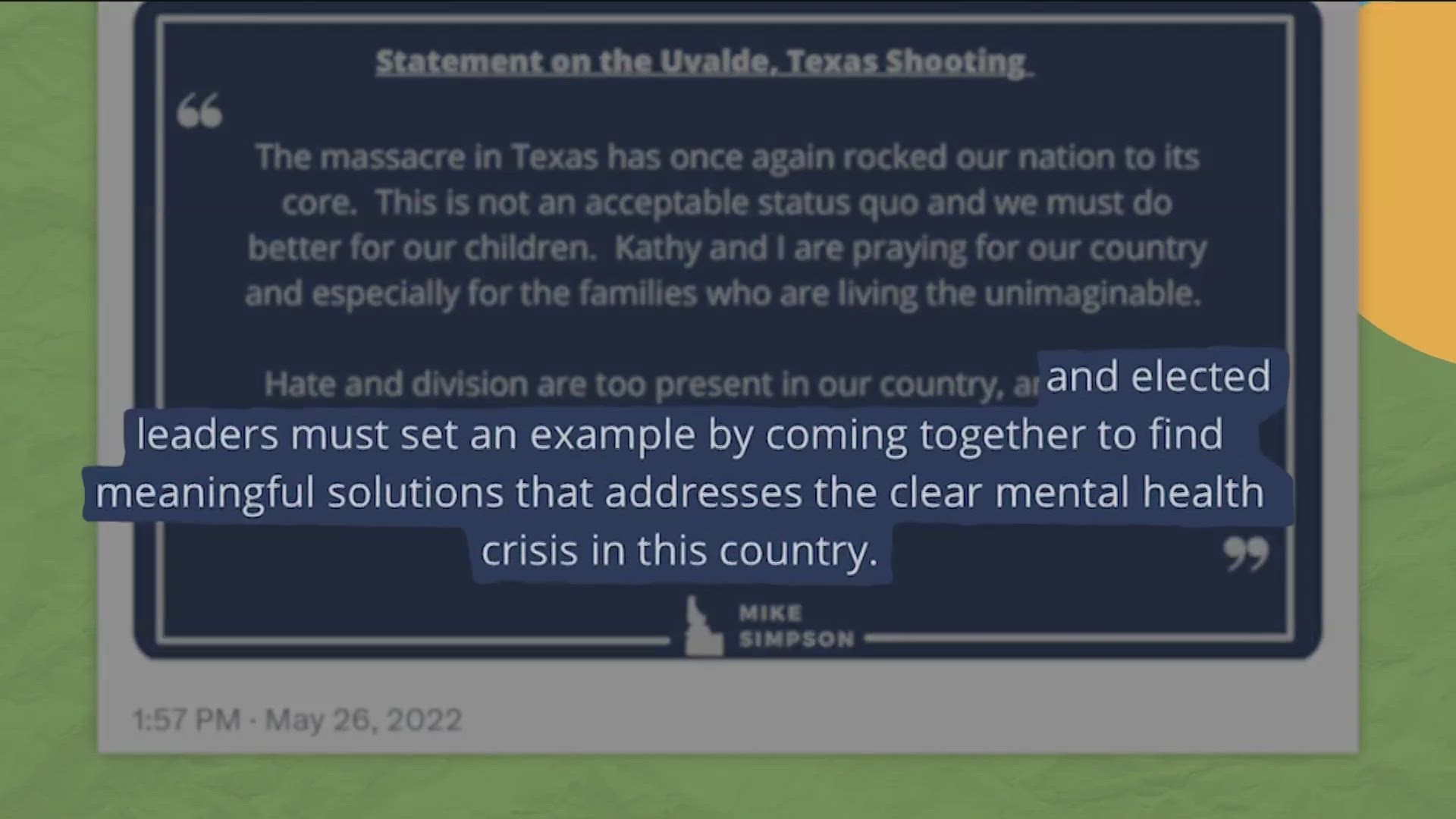IDAHO, USA — There have been a grand total of 202 mass shootings so far in 2023, according to the Gun Violence Archive. Most recently there have been two within a week of each other.
Mass shootings are defined by having four victims shot, injured or killed and not including the shooter.
Every year there is an exponential jump in the amount of mass shootings. In 2021 there were 200 by mid-May and in 2020 and 2019, there were 200 by mid -to-late June.
Last year there were 647 mass shootings in the United States, contributing to 20,200 deaths and nearly 40,000 injuries, according to the Gun Violence Archive, and most are committed using a specific gun, an AR-15.
The same weapon was used this weekend in Allen, Texas and one thing many of these mass shootings have in common, according to the Department of Justice, is that they are mostly committed by white men and the shooter uses an AR-15.
"Of the 172 individuals who engaged in public mass shootings covered in the database, 97.7% were male. Ages ranged from 11 to 70, with a mean age of 34.1. Those shooting were 52.3% White, 20.9% Black, 8.1% Latino, 6.4% Asian, 4.2% Middle Eastern, and 1.8% Native American," the website states.
One of the more memorable mass shootings last year was on May 24 when a gunman walked into Robb Elementary School in Uvalde, Texas and killed 19 children and two teachers with an AR-15.
The following day, after that slaughter, when police waited more than an hour to stop the shooter for fear of his gun, Texas Governor Greg Abbot said the state needed to do a better job with mental health. However, in a contradictory move, he cut $211 million from the department that oversees mental health care in the state.
He said he couldn't support the bill because of language that added naloxone and the amount of spending it would take to tackle the issue. He was not alone, many senators also voted no on the bill. That behavior has echoed throughout the United States government. Here in Idaho, Senator Brian Lenney said, "I voted against almost every budget bill, literally almost all of them, it's the big spending mentality that is going to turn Idaho into Colorado."
Voting no on everything just to prove a point is certainly a tactic. Yet, if mass shootings are becoming more prevalent and the answer to stopping them is to do a better job with mental health, then where is the logic in voting against anything that might do that?
Especially given the most recent state of mental health in the United States. According to Mental Health America, in 2019 and 2020, 20.78% of adults experienced a mental illness, "that is equivalent to over 50 million Americans."
Moreover, when it comes to those dealing with a mental illness, and access to mental health care, Idaho ranks 50th out of 51. The exact same place the state was in the year before.
Additionally, according to a study done by the Columbia University Department of Psychiatry, people with mental illness make up a very small number of mass shooters.
"The public tends to link serious mental illnesses, like schizophrenia or psychotic disorders, with violence and mass shootings. But serious mental illness—specifically psychosis—is not a key factor in most mass shootings or other types of mass murder. Approximately 5% of mass shootings are related to severe mental illness. And although a much larger number of mass shootings (about 25%) are associated with non-psychotic psychiatric or neurological illnesses, including depression, and an estimated 23% with substance use, in most cases these conditions are incidental," the study states.
Join 'The 208' conversation:
- Text us at (208) 321-5614
- E-mail us at the208@ktvb.com
- Join our The 208 Facebook group: https://www.facebook.com/groups/the208KTVB/
- Follow us on Twitter: @the208KTVB or tweet #the208 and #SoIdaho
- Follow us on Instagram: @the208KTVB
- Bookmark our landing page: /the-208
- Still reading this list? We're on YouTube, too:

